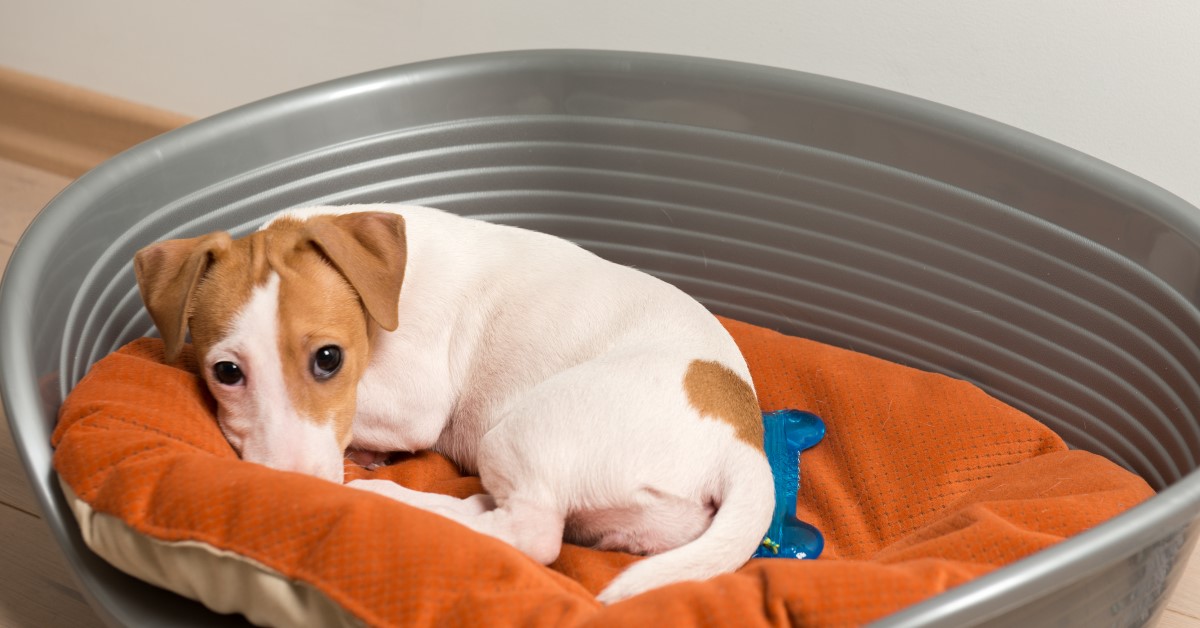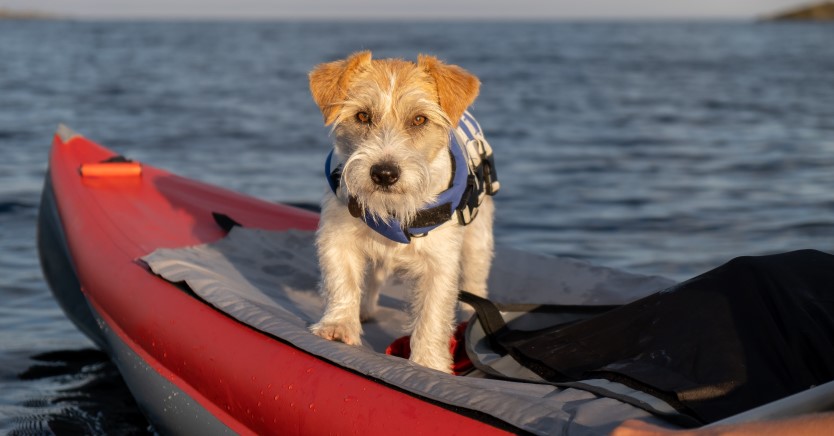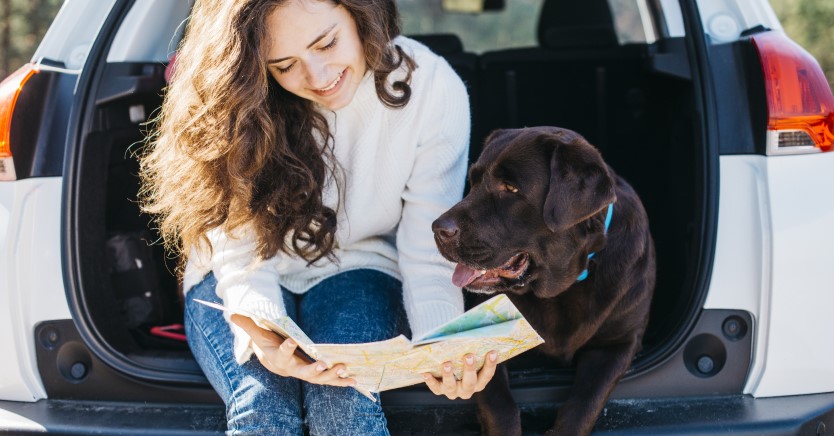Puppy’s First Night Home – What to Expect
Bringing a new puppy home can be an exciting experience that requires some preparation.

Anyone who has ever had a puppy will tell you the first night home can be unpredictable. Puppies are fun to play with and snuggle but they are also a lot of work. As a pet owner, you’ll be responsible for feeding your new puppy, training it to use the bathroom outside, and providing social engagement. You’ll also need to train your dog to follow commands and interact pleasantly with other people and animals. Of course, this doesn’t happen overnight.
On your puppy’s first night home, you’ll want to establish the basics. Here’s a look at how best to prepare for a new puppy and what to expect from your furry friend.
Calm Introductions
Being brought into an unfamiliar environment with strangers can be overwhelming for dogs of any age. It is not uncommon for new puppies to cry, pant, shake, tremble, or hide on their first night home. Try to make your pet feel as comfortable as possible by introducing them to just a small area of the home at a time. Keep the home as quiet as possible and advise young children how to act around animals. If you have other pets in the home, introduce them slowly and in a safe environment.
Sleeping Space
Every pet needs a warm, cozy place to sleep. Some pet owners allow their pets to sleep with them in their bed, while others provide a crate with soft bedding. Ideally, your puppy should have its own space where it can go to relax and de-stress, even if it’s just a dog bed in the corner of the room. To avoid confusion, do not move your dog’s bed until he is familiar with the home.
Puppy Proofing
Even before you pick up your new puppy, it’s important to ensure that the home has been properly puppy-proofed. Block access to swimming pools, ponds, and other areas inside or outside the home that could pose a danger to your pet. Put away loose articles of clothing, shoes, or kids’ toys. Also, remove plants that your puppy could chew on and get sick. Be aware that young puppies are likely to chew on anything, from table legs to electrical cords.
Potty Training Your Puppy
It’s best to start potty training for your puppy as early as the first night home. Choose a place outside for your dog to use the bathroom. If the area is not safely fenced, ensure that the puppy is on a leash. Plan to take your new puppy outside about every two hours as young puppies need frequent potty breaks. Your puppy should also be brought outside when they wake up, after meals, and after play sessions. Remember to have plenty of patience with your puppy. It’s common for young puppies to have the occasional accident inside the home.
Food and Water
Your puppy needs to eat throughout the day to stay healthy and grow. Find out what type of food the puppy has been eating and consider if you should continue with the same food or make the switch to a healthier option. As puppies transition from their mother’s milk, they will need to eat small meals throughout the day. At four months, they can begin eating about three times a day and gradually transition to two meals a day. Your puppy should always have access to clean water.
Puppy Play Sessions
It can be difficult for a puppy to settle at night for bed if he has a lot of pent-up energy. Make it easier for your furry friend to achieve a good night’s rest by engaging in several play sessions throughout the day. Give your new puppy a couple of toys to play with, such as squeaky toys or plush animals. Throw a ball for your puppy and encourage him to bring it back. If the weather is nice, you can also allow your puppy to run around in a safe outside area.
Puppy Cuddles
Puppies are used to cuddling with their siblings and can become scared and lonely when taken into a new environment. Your puppy may want you to hold him close and provide comfort. During your puppy’s first night home, provide plenty of snuggles and hold your pet in a similar way that you would a baby. Some dogs do not like to be picked up so do not force it.
More Tips
- Make use of baby gates. It’s best to confine young puppies to a small area of the home to prevent them from getting into things that could cause an illness or injury. Set up baby gates to keep your new puppy away from potential dangers.
- Provide supervision. Puppies are similar to babies as they require supervision all of the time. If you cannot watch your puppy, hire a puppy sitter or secure your puppy in a latched crate while you’re out of the home.
- Set a daily routine. Dogs do well with routine. Start the day with a trip outside to use the bathroom, followed by breakfast, and some exercise. Be sure to include walks in your pet’s routine.
- Reward your dog for good behavior. Training your pet can be difficult without motivation. When your dog performs a trick or listens to a command, provide a small treat.
- Start grooming early on. Dogs require regular grooming to keep them healthy and happy. If you’re not comfortable grooming your dog yourself, reach out to a professional dog groomer.
Your puppy’s first night home can come with unexpected incidents but don’t worry. As your puppy adjusts to his new home, you’ll find being a pet parent easier. Caring for a puppy is a big responsibility but can also be very rewarding.
Ready to start saving money on pet wellness care?
Then take a look at Mint Wellness, the pet wellness plan that provides fast reimbursement on routine pet care. Save on vaccinations, wellness exams, preventatives, dental, and more!
Learn More


